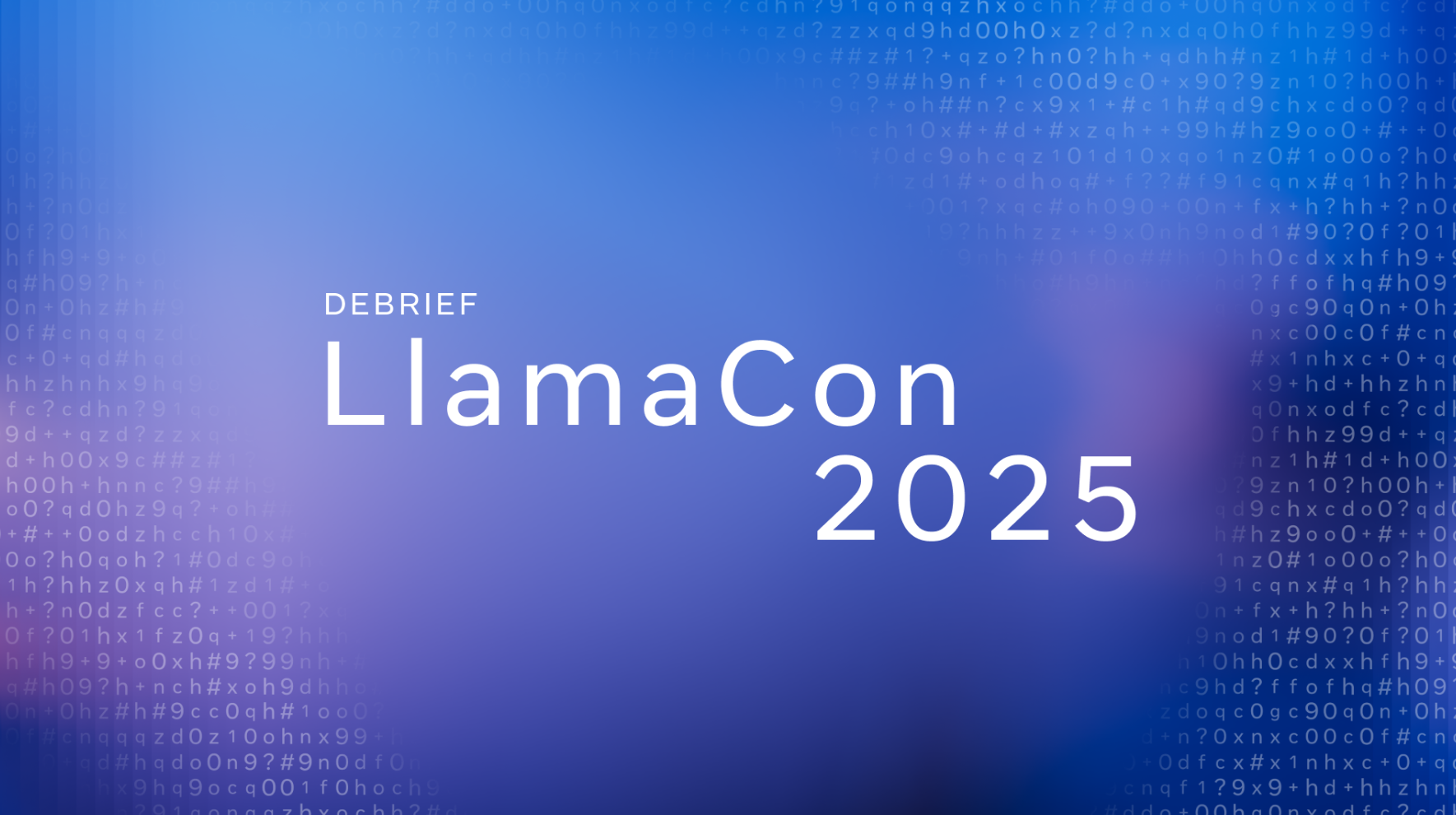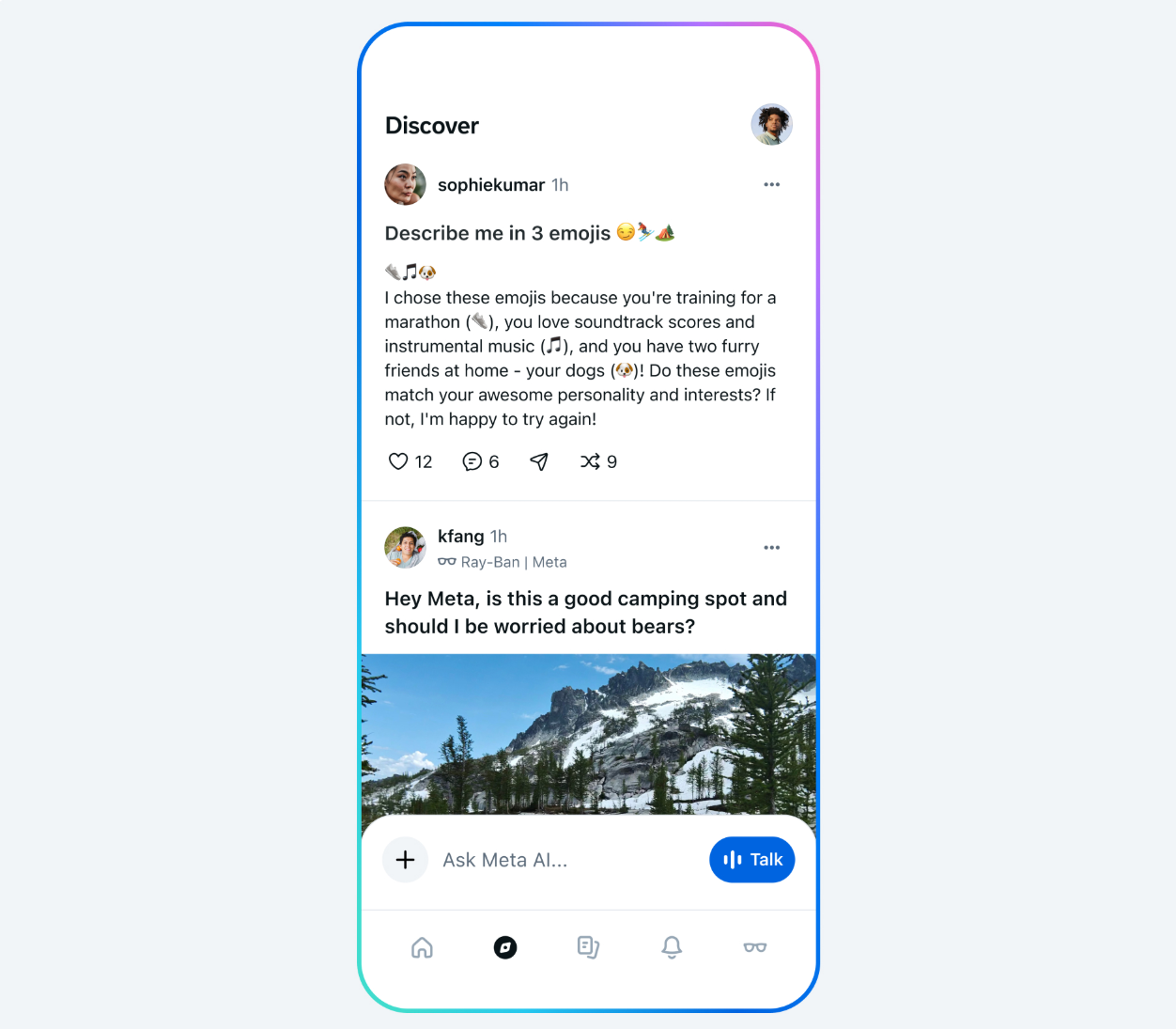Meta launches AI assistant app and Llama API platform

Meta unveiled several new AI initiatives at its first LlamaCon developer conference, headlined by a standalone AI assistant app and a comprehensive API for its Llama language models.
The Meta AI app is Meta's first dedicated app for its AI assistant. According to Meta, the app is intended to provide a more personalized experience by adapting to user preferences and maintaining context across conversations.
The app allows users to interact with the AI via text or voice, generate and edit images, and receive recommendations. It runs on Meta's latest Llama 4 model. Voice features are currently in testing and available in the US, Canada, Australia, and New Zealand.
Shifting to a standalone app places Meta in closer competition with ChatGPT, though current features may not fully match OpenAI's offering. Whether users will notice these differences in everyday use remains unclear. Meta's large social media network provides significant distribution advantages, similar to Google's integration of Gemini into Search.
The app is also closely integrated with Meta's broader ecosystem. Conversations started in the app can be continued on desktop or Ray-Ban Meta smart glasses, and it acts as a central hub for managing AI-enabled devices.
Meta has also introduced social elements with a "Discover Feed," which lets users see how others interact with the AI, share prompts, and post their own content when allowed.

OpenAI is reportedly developing similar social networking features, with the company's Sora image and video feed a likely candidate for such an extension.
Expanding developer access with the Llama API
Meta's new Llama API enables developers to quickly generate keys and access interactive testing environments for various Llama models, including Llama 4 Scout and Llama 4 Maverick. Until now, developers could only use the models through self-hosting or select cloud providers. SDKs for Python and TypeScript are available, and compatibility with the OpenAI SDK is intended to simplify the migration of existing applications.
Developers can fine-tune"our new Llama 3.3 8B model" model using Meta's toolkit for data generation, training, and quality evaluation. Trained models can be exported and hosted independently of Meta. Meta says that user content will remain private and won't be used to train their models.
Meta has also partnered with Cerebras and Groq to enable developers to test Llama models on specialized hardware, with centralized billing. More hardware providers are expected to join the platform in the future.
Developers interested in early access can join the waiting list. A demonstration of the app and API is available in Meta’s presentation video starting at the 30-minute mark.
Meta has also announced new safety tools, including Llama Guard 4, LlamaFirewall, and Llama Prompt Guard 2. These tools are intended to help mitigate risks from malicious prompts or attacks. The Llama Defenders Program establishes a partner network to assist organizations in assessing the security of their AI systems. Further details about open-source protection tools and recent security updates are available here.
AI News Without the Hype – Curated by Humans
As a THE DECODER subscriber, you get ad-free reading, our weekly AI newsletter, the exclusive "AI Radar" Frontier Report 6× per year, access to comments, and our complete archive.
Subscribe nowAI news without the hype
Curated by humans.
- Over 20 percent launch discount.
- Read without distractions – no Google ads.
- Access to comments and community discussions.
- Weekly AI newsletter.
- 6 times a year: “AI Radar” – deep dives on key AI topics.
- Up to 25 % off on KI Pro online events.
- Access to our full ten-year archive.
- Get the latest AI news from The Decoder.